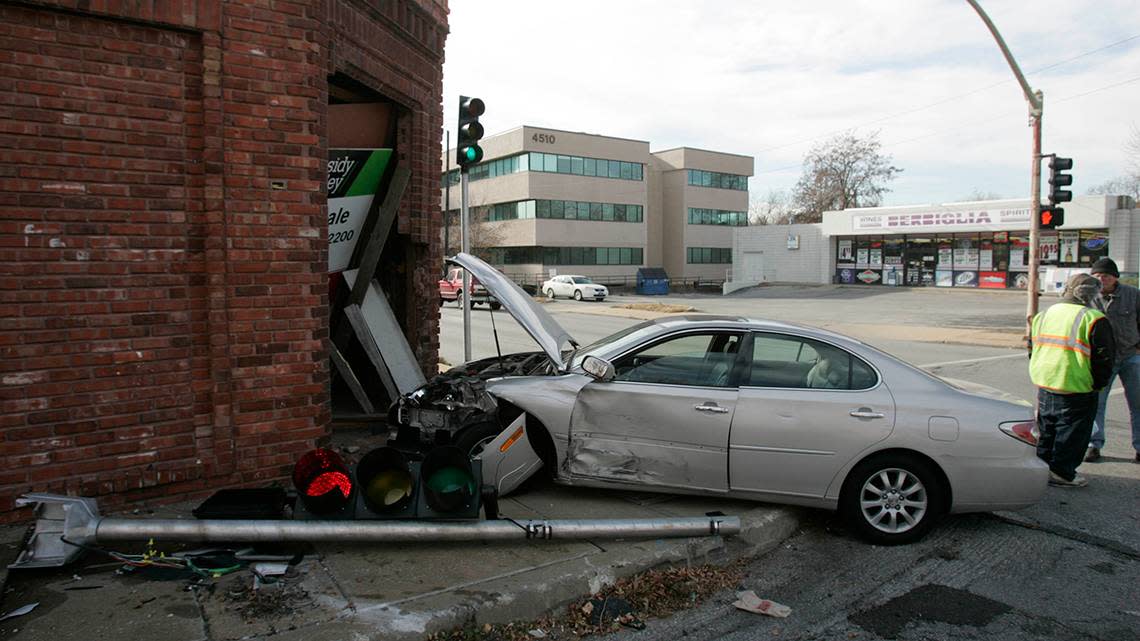I love you, Kansas City, but your driving makes me happy every time I leave town | Opinion

Road hazards
I am finally a snowbird, moving from Kansas City to Arizona during the winter. While here this summer, I was dismayed at how poorly people drive. They don’t stop for red lights or stop signs. I was almost hit while riding my bicycle because of a motorist’s failure to obey a signal.
Kansas Citians pull out in front of others, causing a hard brake to prevent hitting them. And forget about a double yellow line indicating a no-passing zone. A four-way-stop intersection is a no-way-stop for many. Apparently, traffic safety and rules are not a priority here. I have seen countless expired vehicle tags all over the city.
Well, I’m heading back to Scottsdale, Arizona, for the winter, where there is a police presence to monitor such behavior. But I still love Kansas City, and I’ll be back as a defensive driver.
- Gloria Jean Jaros, Kansas City
Yes, necessary
In the Nov. 7 Kansas City election, Question 2 asks voters’ permission for the city to sell 5.399 acres of public land because they are “no longer necessary.” This is a mature woodland near Northeast 32nd Terrace and North Holmes Street. The site is a significant part of our urban forest. It is a link in a wildlife corridor. It provides summer cooling, stormwater capture, a carbon sink and biodiversity.
Far from unnecessary, this site is an irreplaceable remnant of our natural heritage. In the metropolitan area, one small parcel at a time, we have lost practically all of our natural ecosystem to agricultural, commercial or residential use. Once these natural areas are lost, even with our best efforts, it will take decades or centuries to restore the lost habitat.
It is especially important to recognize and preserve the remaining natural areas in public ownership.
We almost never consider the importance of nature as we make land use decisions. But our parks can and should lead in the preservation and interpretation of the complex biosystem that sustains our well-being, including all of life itself.
Vote no on Kansas City Question 2.
- Don Arney, Kansas City
Just ’fess up
Now that members of Donald Trump’s inner circle who tried to help him fraudulently overturn the 2020 election are starting to flip, (Oct. 25, 13A, “Trump co-defendant Jenna Ellis pleads guilty in Georgia case”) it’s time for Johnson County Sheriff Calvin Hayden and all the other deniers to admit they knew the truth all along.
Come on, folks: Admit it.
- Stuart Stern, Olathe
Help needed
After reading about the U.S. shipping advanced weaponry to help Israel in its war against Hamas, I felt compelled to address the importance of sending foreign aid to regular people, too. (Oct. 30, 1A, “House expected to pass Israel aid bill this week”)
Instead of focusing solely on sending money for military machinery, why not also send aid for all the civilians without basic necessities such as water, food and medical supplies? Many Americans overestimate how much the U.S. spends on foreign aid, believing it’s a huge part of the federal budget. In reality, it’s less than 1%.
As an intern for The Borgen Project, a 501(c)(3) nonprofit organization that works to make global poverty a focus of U.S. foreign policy, I have learned the importance and the many benefits of sending foreign aid. During these times, it is not only a moral imperative — it also serves strategic, diplomatic and humanitarian purposes.
Foreign aid provides essential humanitarian assistance to civilians affected by these conflicts. It helps alleviate human suffering and reduce causalities, particularly among vulnerable populations such as children, the elderly and the displaced.
Sending foreign aid and supporting legislation to strengthen it are crucial now more than ever.
- Francesca Quaglia, Overland Park

